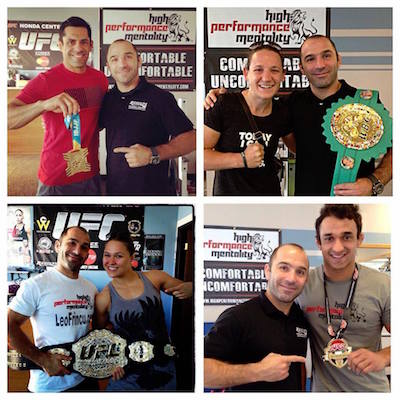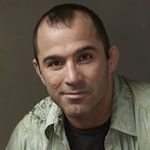
I’ve been a performance coach for over a decade and I have worked with a lot of athletes and non-athletes helping them take their game to the next level. During this time, I have noticed that not many people see the benefit of having a real professional in their corner. Since we all need to perform one way or another, the reality is that everyone needs help– not just professional athletes. Even more, often times, non-athletes, or better said, your average Joes, need coaches more than athletes do. However, the regular people are the last ones to ask for, or to seek, a mental coach. So the question is, what can one benefit from having a mental coach?
- Problem solving. Whether you are at the gym trying to get through your last reps or at work dealing with a stressful deadline, in both situations, you need strong problem solving abilities. There is no difference between coming up with a solution to get you through your challenging exercise or figuring out a way to finish your work project on time. Getting through the last three push-ups of your last set requires the same strategy, and sometimes the same amount of energy, as coming up with a solution to your problem, and then executing it. Often times it is not about the answer itself; it is about the process of coming up with that answer. In order to perform at your highest potential and win your matches, you basically need to develop tactics designed to help you come up with answers to unexpected questions or situations. Athletes use competition to test their skills and training sessions to get in better shape. Other people have job interviews and deadlines, long work schedules and career goals. However, the difference between athletes and “regular” folks is that athletes train, but “regular” people don’t. They both want to move forward and want to win, but not everyone finishes the race. Eventually we all get to a destination. What separates the ones who win from the ones who who fail is the ones who perform better. They are the first ones to cross the finish line and have a coach or a strong support system. The ones who fail are the ones who don’t think they need help and have poor problem solving abilities.
- Withstanding pressure. How many times have you wished you had a cheat sheet or an owner’s manual custom designed for you, to help you with stressful situations in your life? It’s not just athletes who need to perform well under pressure. We ALL do. We all vent to our friends about our problems, but not all of us are truly seeking solutions. Having a professional coach with experience in our corner can help us steer our careers and lives in the right direction. A good coach has training programs and insights specially designed to strengthen our psyches and to help us master our emotions under pressure. We expect to have an outstanding performance in life, then get upset when things don’t go our way. We’re not interested, however, in training or in seeking any objective and constructive feedback. Even more, we somehow believe we don’t need any help and feel entitled to an easy way out of our difficult situations. You’ll get out what you put in. You’ll choke under pressure if you don’t have the right skills. This is especially true if you don’t train. Not everyone grows up in an environment where these skills were thought and practiced. For the same reason, athletes hire trainers to help them get stronger and faster. “Regular” people also need coaches to help them develop the strength and flexibility needed to withstand the pressure of work and whatever else life likes to throw at us. Simply put, like any athlete, if we want to perform well under pressure, we need to train our bodies and minds. That is what will give us the much-needed confidence and strength to reach our highest potential.
- Self-belief. “Regular” people, just like athletes, need to believe in themselves and their skills in order to access their inner power. You can’t fully rely on your skills if you’re not aware or believe in them. Athletes have their athletic and professional careers; “regular” people have their jobs and families. The bottom line is we all have goals. Self-belief is the most critical part of our existence and the key ingredient to achieving our goals. We first need to believe in ourselves, before anyone else can believe in us. Believing is trusting that we have what we need to bring our dreams to reality. Believing can only be possible when we understand ourselves, and understanding happens only with clarity. You cannot get the most of your strengths or fully access your skills if you don’t have clarity, understand, and ultimately, belief in yourself. From walking to running, from connecting with other people to connecting to our true selves, we must have the right guidance and training to reach our highest potential. Everyone wants self-belief, but self-belief is the very last thing pursued by non-athletes. Your belief system is at the core of your entire behavior pattern and the main reason you are who you are. This explains why former athletes make better employees, are more driven and motivated, and therefore more successful. Having the right mentor or coach can significantly increase your self-belief and your productivity. This elevates one’s self worth, and therefore helps him or her make better choices in his or her personal and professional life.
Athletes need coaches. “Regular” people need coaches. Coaches need coaches. Everybody needs somebody. Even your own body tells you and sometimes screams when it needs more air, food, water, sleep, warmth, etc. Your own body has no problems asking for help. Often times the problem is YOU not listening to or hearing what your body is saying. Now imagine your body behaving the same as your mind and not asking for any help. What would happen to you? Do you think you’d last more than a day?
So, next time you wonder whether you need a coach or not, ask yourself:
Do I have more problems or more problem solving skills?
Am I running away from responsibilities or toward them?
Do I believe in myself, or do I listen more to my fears?
Thank you and good luck.
 Leo Frincu came to the United States from Communist Romania with $10, a backpack and four words of English. Now, he’s a successful businessman and renowned trainer and mentor for such athletes as former UFC women’s bantamweight champion Ronda Rousey. Among his many athletic accomplishments, Leo is a six-time Romanian wrestling champion, four-time European champion and was also trainer and coach for the 2003 U.S. Olympic Wrestling Team. Leo is the author of the book “Choosing Freedom”, which details the steps he took to leave the oppressive Romanian society through wrestling and how his experiences have helped him in the United States – going from a bus boy to successful entrepreneur. You can learn more about Leo Frincu on his websites www.LeoFrincu.com and www. resultsstudio.com. Also, follow Leo on Twitter @leofrincu and “LIKE” his page on Facebook.
Leo Frincu came to the United States from Communist Romania with $10, a backpack and four words of English. Now, he’s a successful businessman and renowned trainer and mentor for such athletes as former UFC women’s bantamweight champion Ronda Rousey. Among his many athletic accomplishments, Leo is a six-time Romanian wrestling champion, four-time European champion and was also trainer and coach for the 2003 U.S. Olympic Wrestling Team. Leo is the author of the book “Choosing Freedom”, which details the steps he took to leave the oppressive Romanian society through wrestling and how his experiences have helped him in the United States – going from a bus boy to successful entrepreneur. You can learn more about Leo Frincu on his websites www.LeoFrincu.com and www. resultsstudio.com. Also, follow Leo on Twitter @leofrincu and “LIKE” his page on Facebook.
Be sure to check out Leo’s book: High Performance Mentality and check out his past articles on ProMMAnow.com.
